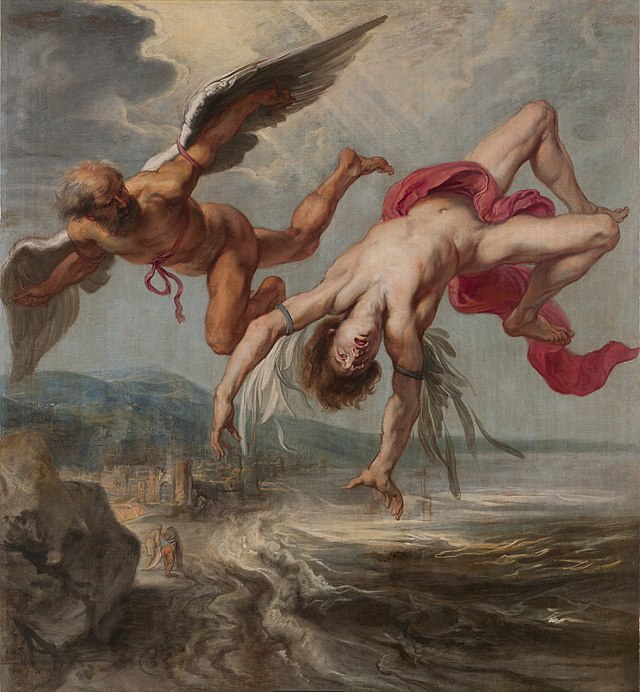Icarus Meaning

In the vast expanse of human mythology, few tales are as universally recognized and profoundly resonant as that of Icarus. Rooted in ancient Greek mythology, the story of Icarus and his ill-fated flight holds a timeless allure, captivating audiences across cultures and generations. However, beyond its surface narrative, the myth of Icarus encapsulates profound themes and enduring lessons that continue to reverberate through the corridors of literature, art, and philosophy.
Mythical Parable
At its core, the myth of Icarus is a cautionary tale, warning against the perils of hubris and the consequences of overreaching ambition. Crafted by the legendary Greek storyteller, Ovid, and further elaborated upon by later writers such as Apollodorus and Hyginus, the tale follows the journey of Icarus and his father, Daedalus, as they attempt to escape imprisonment on the island of Crete.
Central to the narrative is the remarkable feat of engineering undertaken by Daedalus – the construction of wings made from feathers and wax. Entrusted with these fragile yet miraculous wings, Icarus is warned by his father not to fly too close to the sun, nor too close to the sea, lest the wax melt or the moisture weigh him down. Ignoring his father’s admonitions, Icarus becomes intoxicated by the exhilarating sensation of flight, soaring ever higher until the radiant warmth of the sun proves too irresistible to resist.
Profound Meaning of Icarus
In this pivotal moment, Icarus embodies the archetype of the reckless youth driven by unbridled ambition and a thirst for freedom. His ascent towards the heavens symbolizes the human desire to transcend earthly limitations, to defy convention, and to reach for the unreachable. Yet, in his reckless pursuit of glory, Icarus disregards the wisdom of experience and the guidance of his father, ultimately paying the ultimate price for his hubris.
The tragic demise of Icarus serves as a stark reminder of the fragility of human existence and the inevitability of mortal limitations. Despite our aspirations for greatness, we are bound by the constraints of our humanity – vulnerable to the forces of nature and the consequences of our own actions. Moreover, the myth underscores the inherent dangers of unchecked ambition and the importance of tempering audacity with prudence and humility.
Conclusion
Amidst the somber reflections on mortality and folly, there exists a glimmer of hope within the myth of Icarus – a testament to the enduring resilience of the human spirit. For while Icarus may have plummeted to his untimely demise, his story lives on as a cautionary beacon, illuminating the path towards greater self-awareness and enlightenment.
In this sense, the myth of Icarus transcends its ancient origins to offer timeless insights into the human condition – a poignant reminder of the delicate balance between aspiration and restraint, between soaring ambition and grounded wisdom. As we navigate the complexities of our own lives, may we heed the lessons of Icarus, ever mindful of the dangers of flying too close to the sun, yet inspired by the boundless possibilities that lie within our reach.





